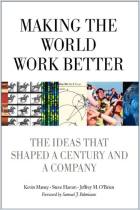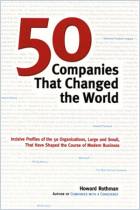The history of IBM has deep roots in the late 1800s. How did one US company thrive through two World Wars, the Great Depression, the Cold War and the New Millennium? Academician James W. Cortada can answer that question. With a historian’s passion for facts and a gossip columnist’s love of quirky details, Cortada delivers an engaging narrative that intertwines the history of the United States with the development of a corporate institution. In life and on the page, business cycles can be repetitive, so Cortada retells some stories and facts in this corporate biography, which nonetheless is a good read that impels you forward.
From technology to HR practices, IBM left a huge footprint on the international corporate world.
IBM’s keystrokes delineated the international business community for generations. Known as “Big Blue,” IBM has molded the culture of the business world since the Second World War. Historians highlight the company’s legendary practices of promoting, training and celebrating its people, providing many of them with lifetime employment.
Analysts applaud IBM’s sales culture, with its training and its commitment to customer service and consumer education. IBM’s milestones and achievements include:
- US census count of 1890 – The US government conducted the 1890 census using punch-card technology and automation developed by the company that ultimately became IBM.
- Second World War – The Allies used IBM technology to organize regional economies to finance the war and collect data.
- Mainframe and personal computers – After World War II, IBM engineers explored advanced electronics and information processing technology that led to the development of IBM computers.
<...
James Cortada, a research fellow at the Charles Babbage Institute at the University of Minnesota, is the author of All the Facts: A History of Information in the United States Since 1870 and the co-author of Fake News Nation: The Long History of Lies and Misinterpretations in America.






















Comment on this summary or Démarrer une discussion